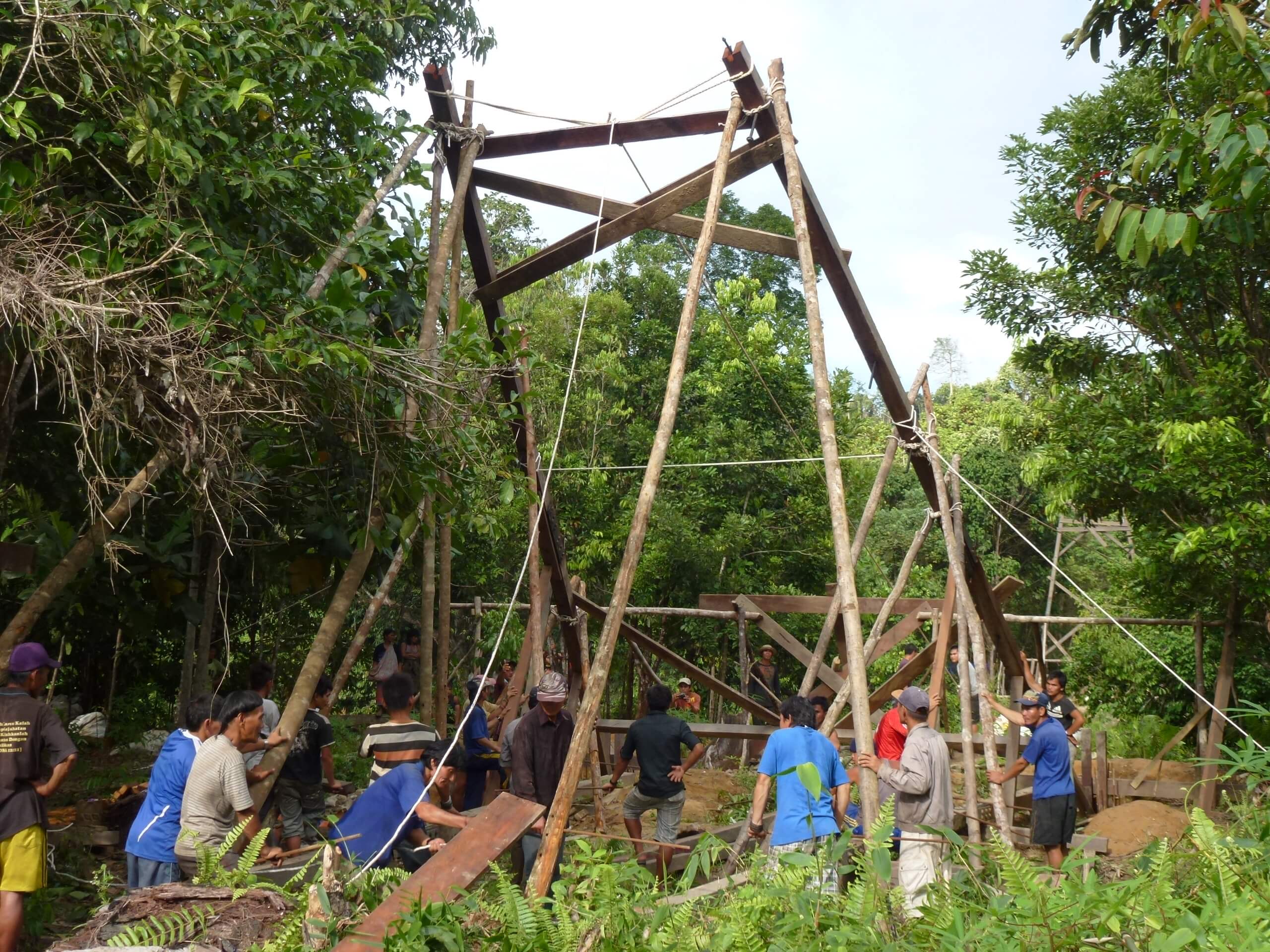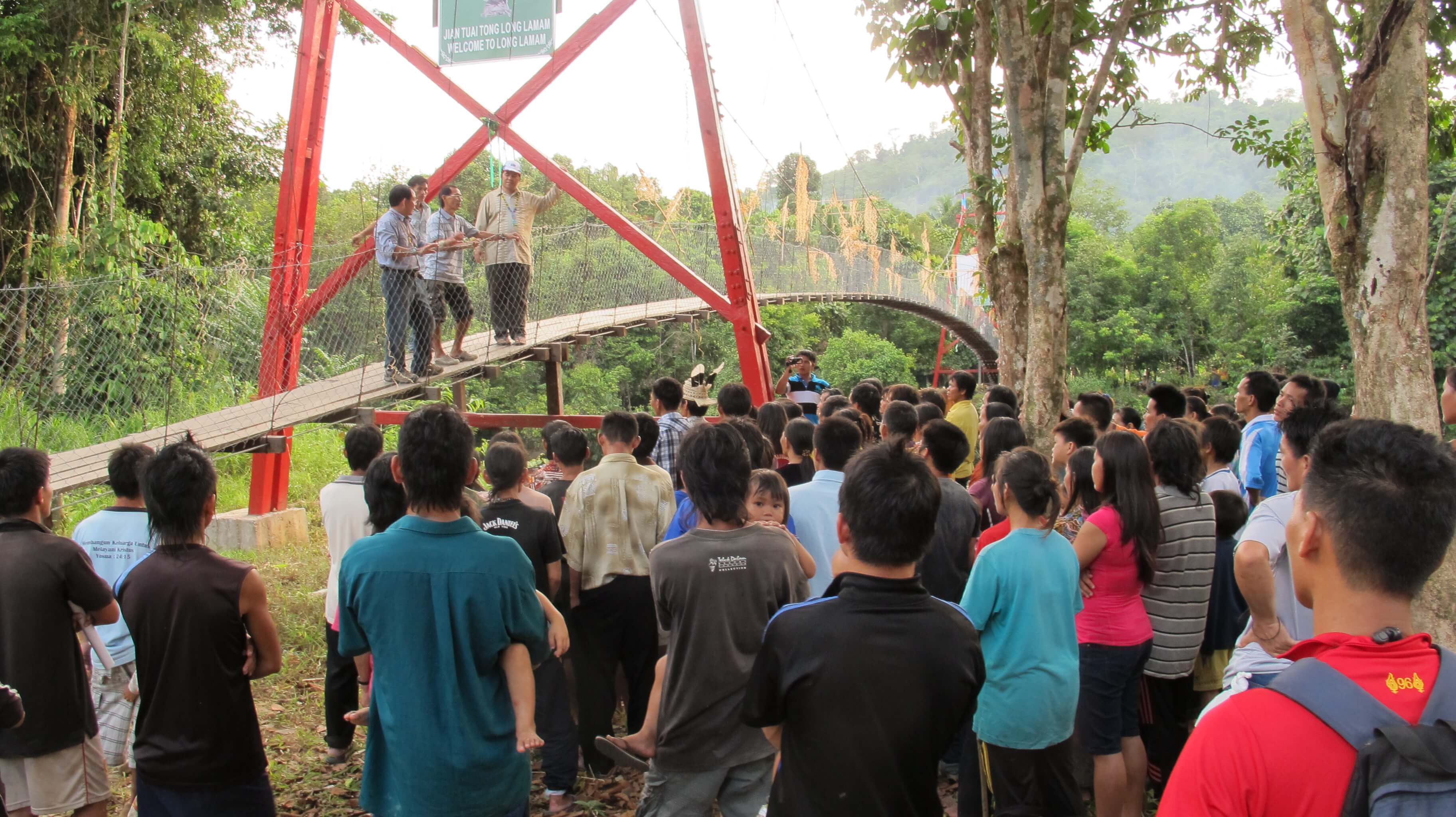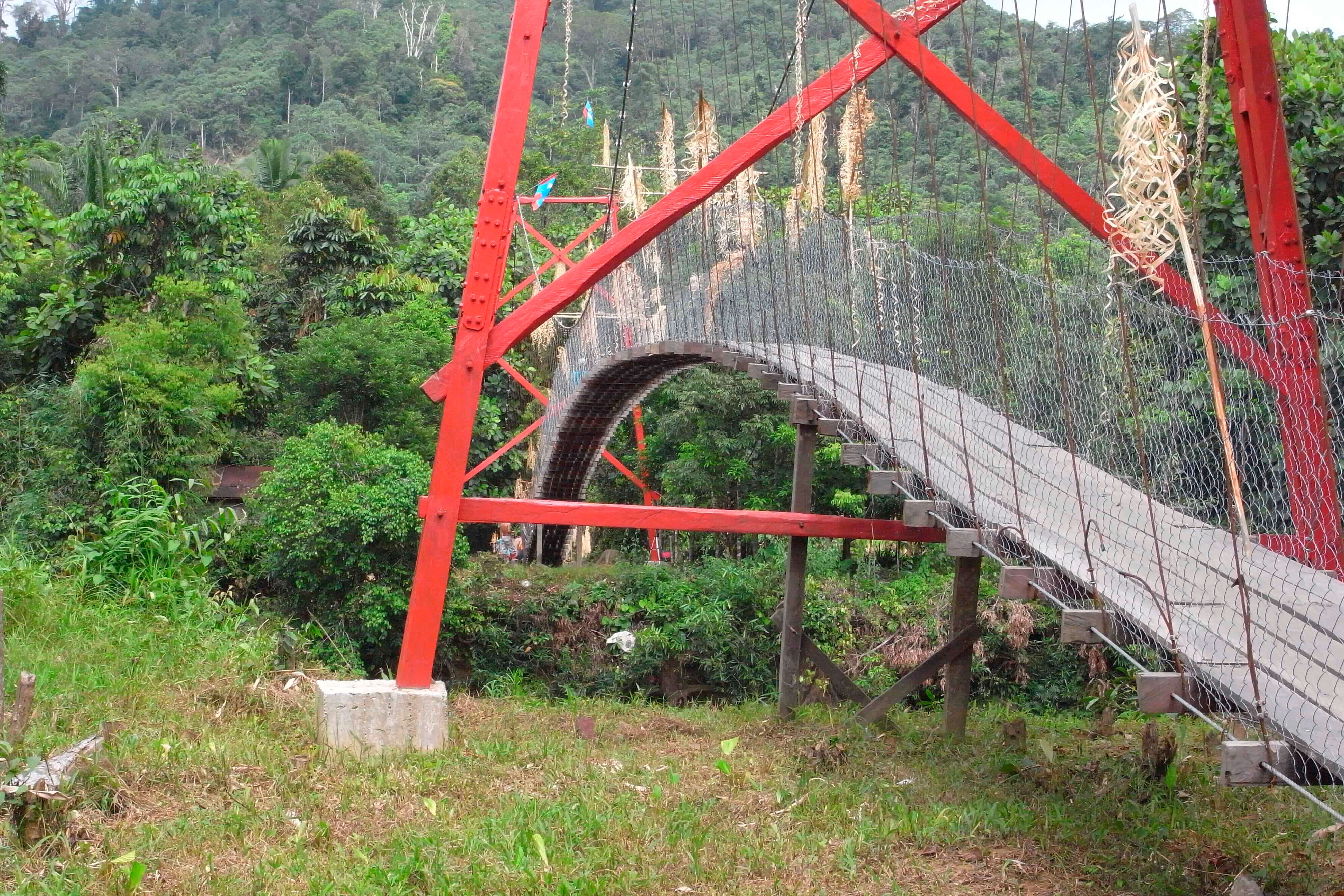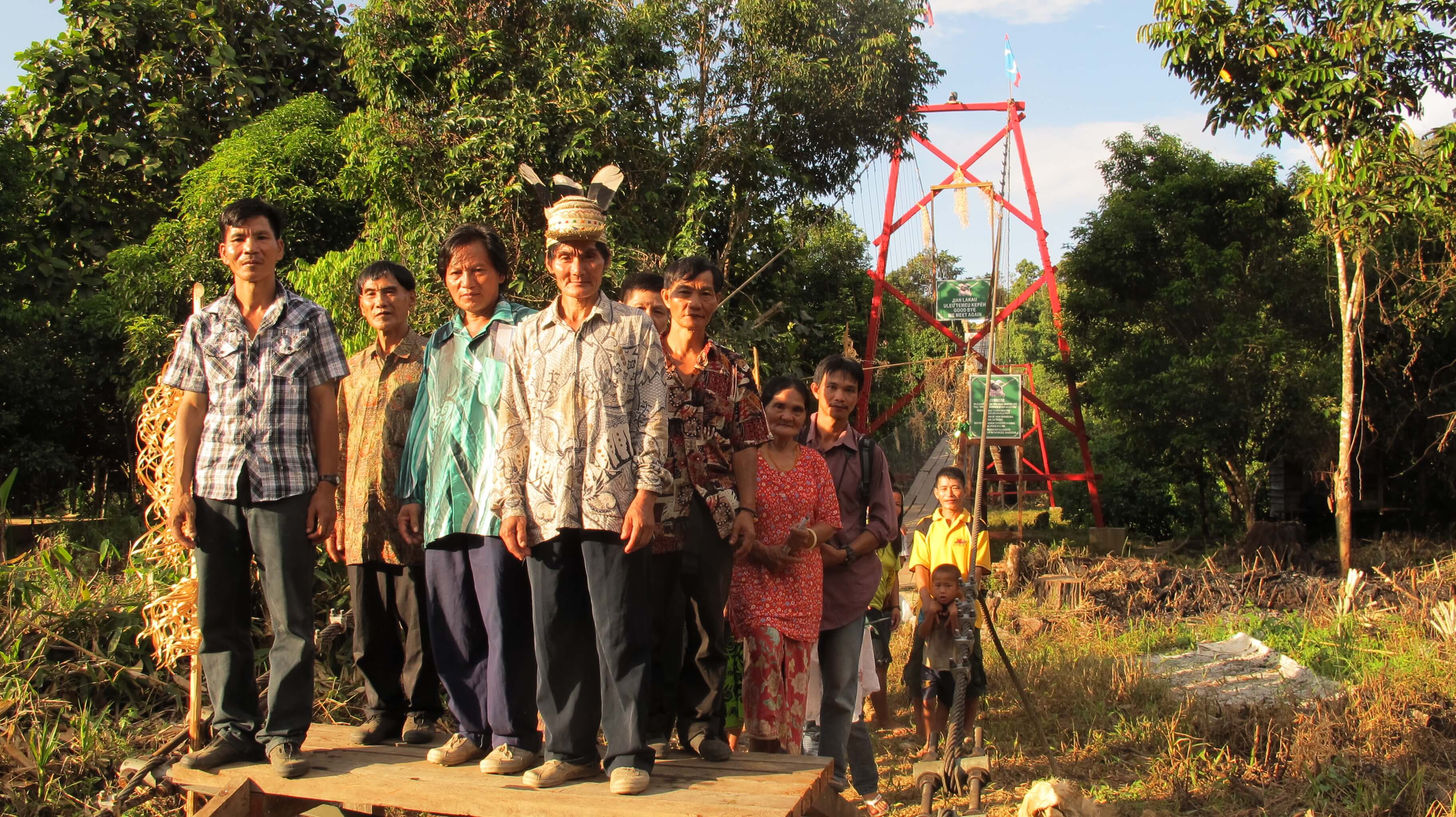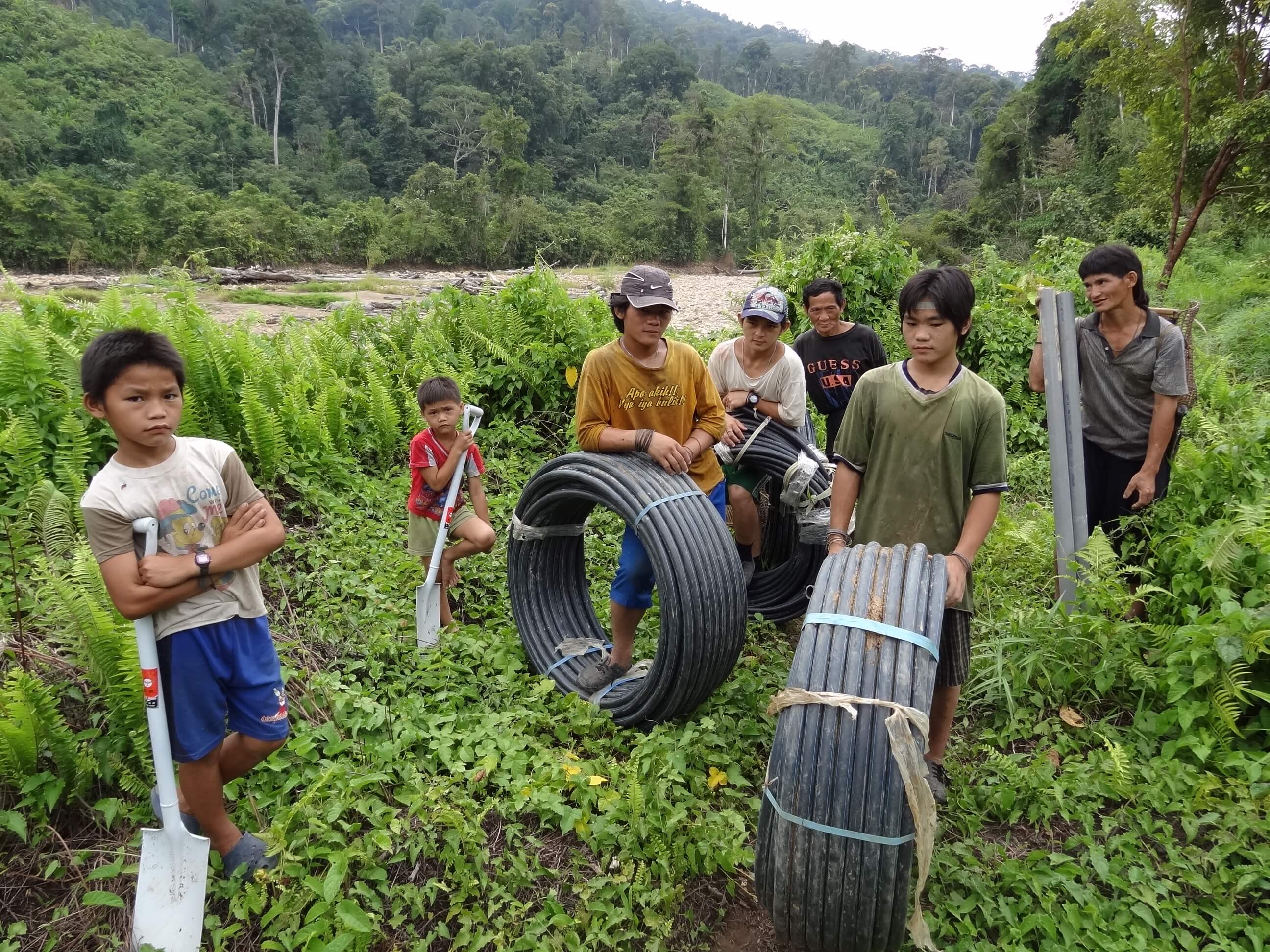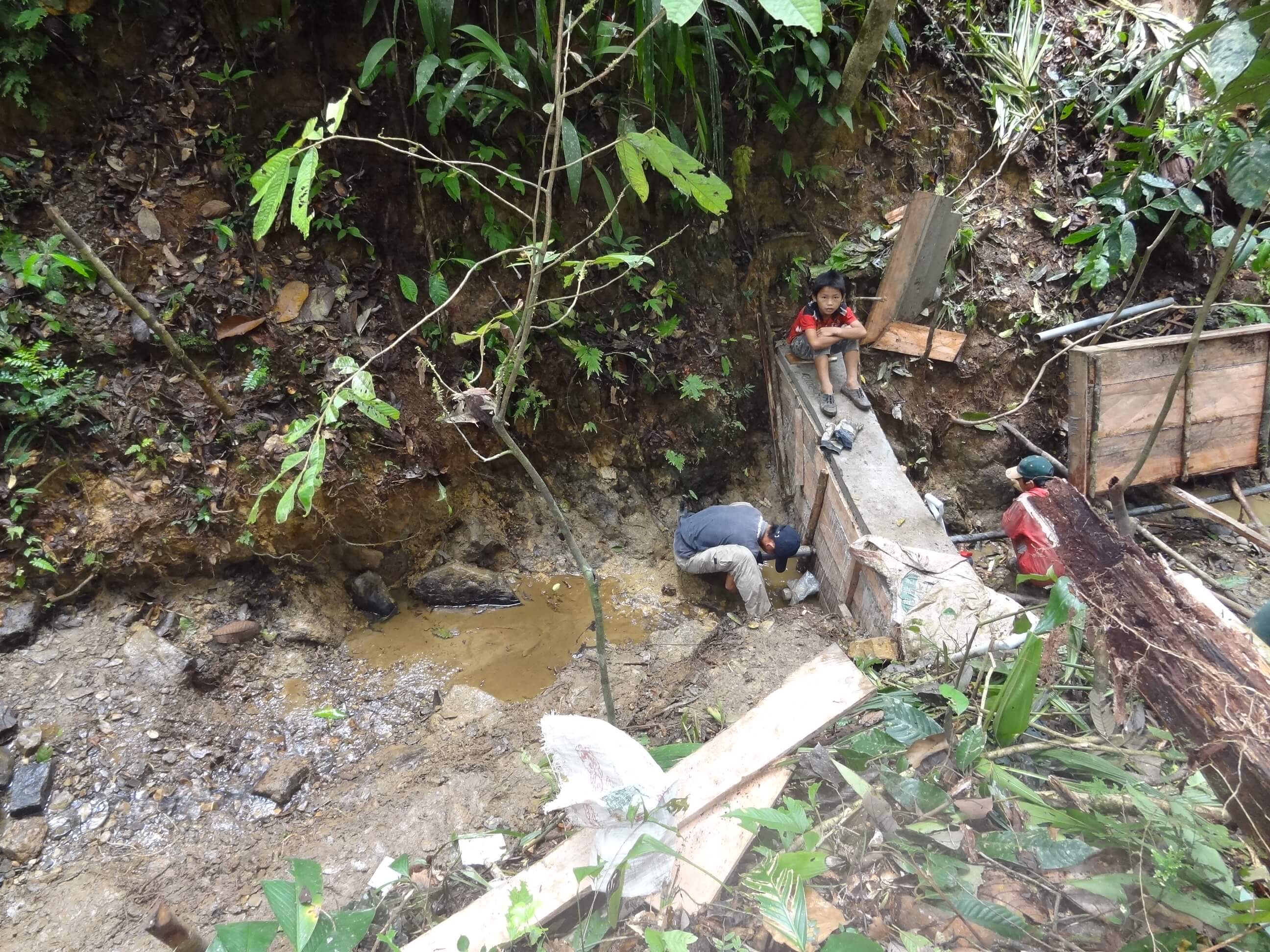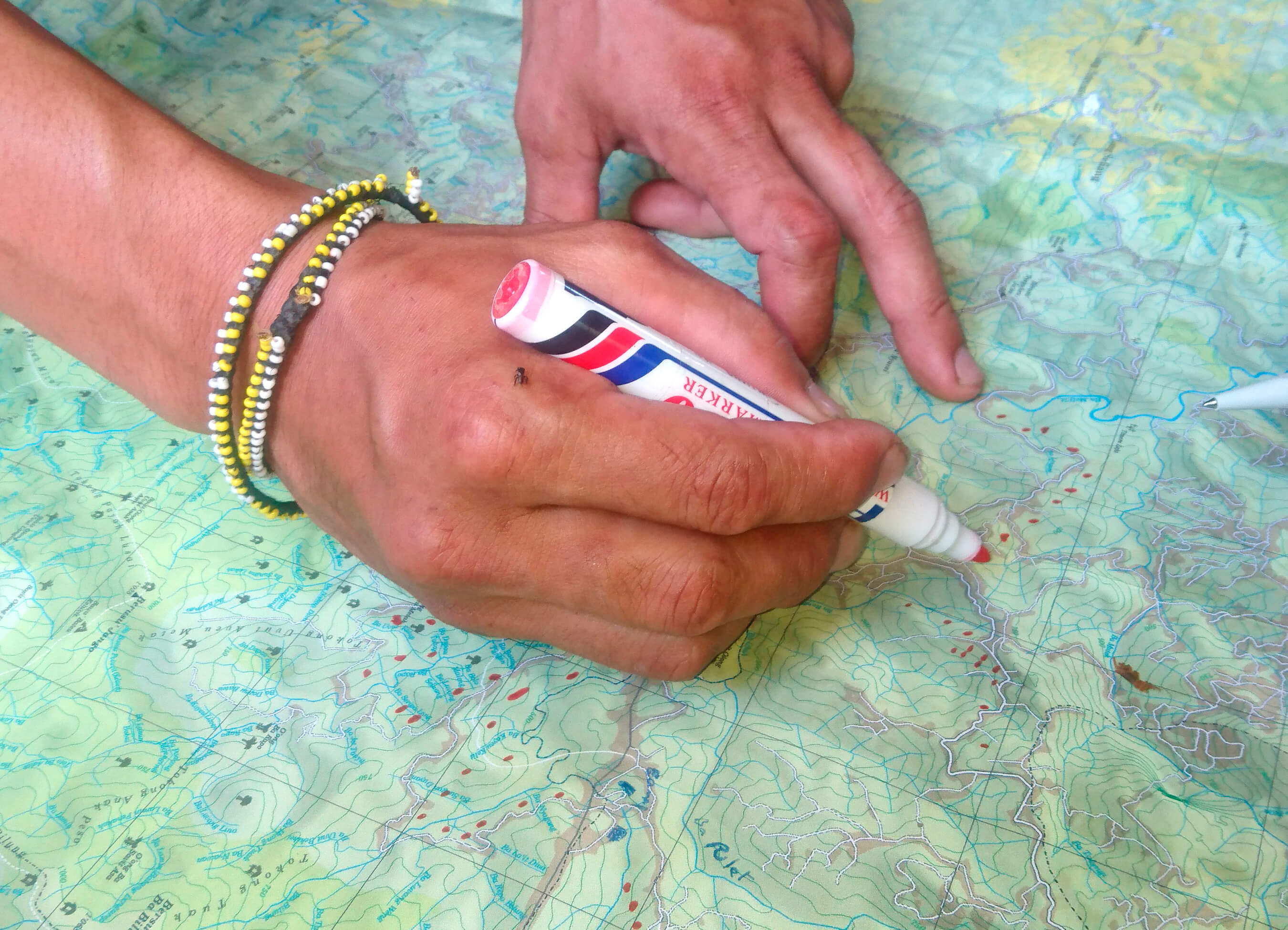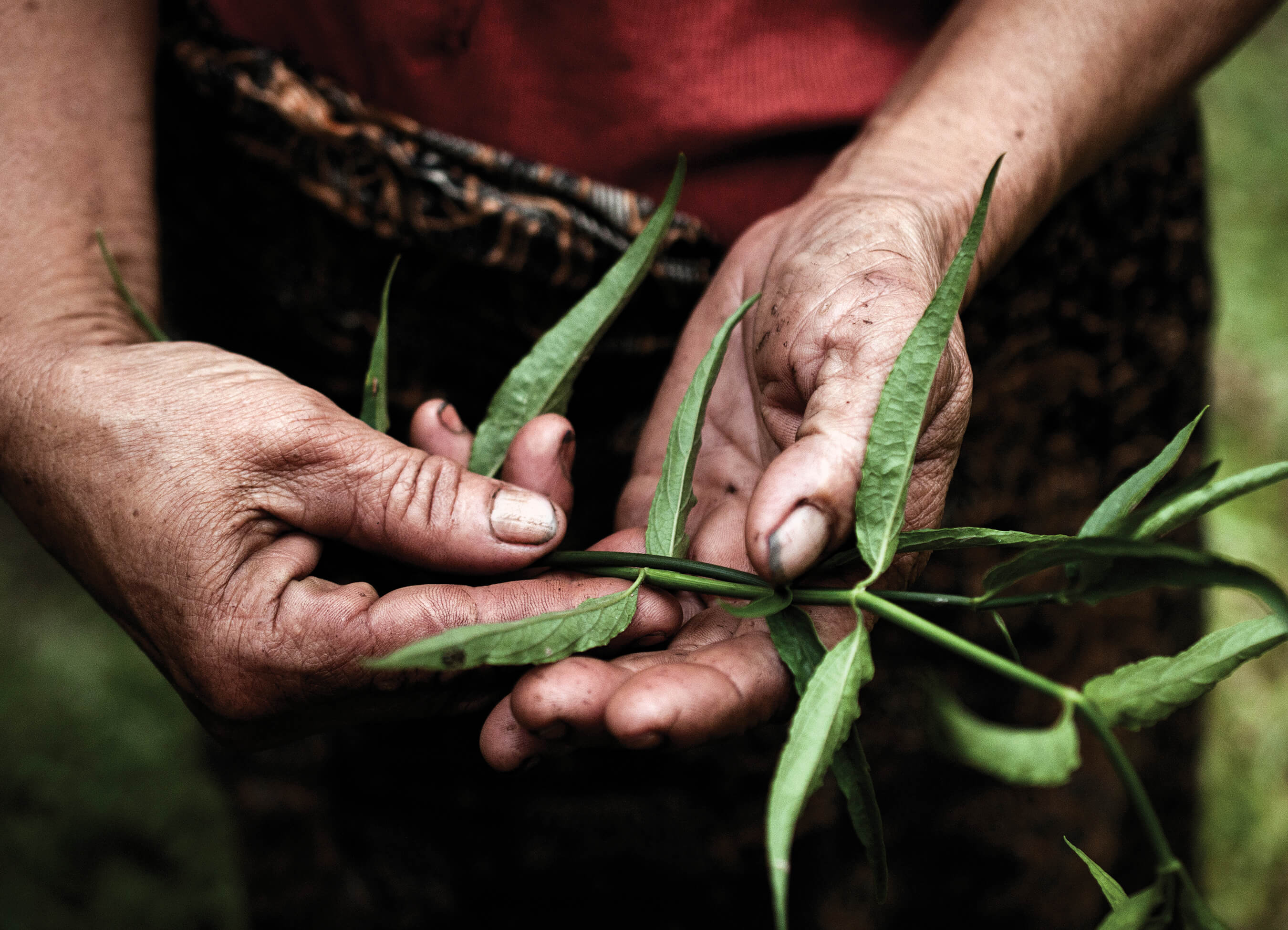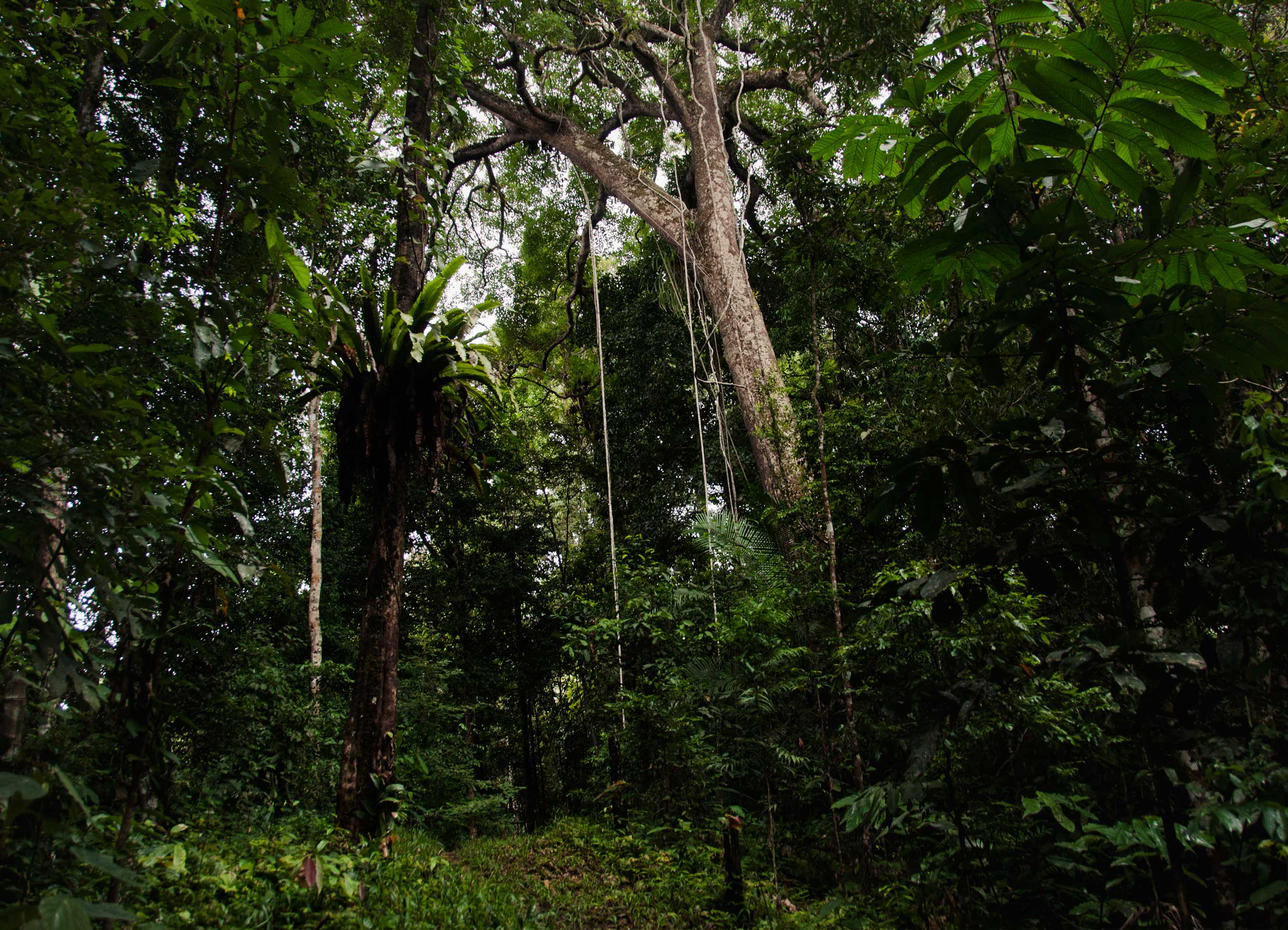
Infrastructure projects
The rapid advance of deforestation and the radical way in which this is being done is causing changes in the living conditions of the originally nomadic Penan. The Bruno Manser Fonds is assisting the Penan in adapting to the new living conditions confronting them by supporting infrastructure projects. In cooperation with the Penan themselves, the Bruno Manser Fonds is involved in constructing bridges, to ensure that rivers can be crossed safely during all seasons and in laying pipes for the delivery of clean drinking water.
Changed way of life
The Penan’s way of life is being severely impacted by the advancing chopping down of more and more of the age-old primary forests. One effect is that less and less space is available for their nomadic way of life. Another is that the rivers in those forests that are still standing are seriously contaminated by the erosion caused by logging activities.
The consequence of this is that the forest dwellers are compelled to adopt a semi-nomadic way of life or even a settled one. One important element in this transition is their mobility. The presence of roads and motorised means of transport makes it possible for the Penan to travel faster and much more frequently and thus to be more mobile. Given the greater accessibility of the regional and urban centres in Sarawak, these now play an important role for the Penan as places of work and for the supply of medical and educational services.
To be able to reach these roads, however, the Penan have to cross rivers up to 60 metres wide on foot or by boat. They can manage that in normal weather conditions, but their mobility is severely restricted when heavy rains swell the big rivers, making them into impassable, raging torrents. Such extreme conditions are going to occur more frequently in future, since the rains are going to be stronger and more irregular. This climate shift is one of the indirect consequences of the massive clearance of the rainforest.
Suspension footbridges
The construction of suspension bridges for pedestrians represents a consistent, long-term adaptation to these new living and environmental conditions. When designing such bridges it must be borne in mind that they are to have a long service life and must also withstand the extreme weather conditions. They are thus a reliable means of ensuring constant and regular mobility, which is a precondition for attending school or training, doing a paid job and also for exercising political responsibility.
A suspension footbridge also has the effect of strengthening the self-confidence and cohesion of the community members. Quite apart from the infrastructure improvement, the Penan are thus justifiably very proud that it was they who initiated the project and who managed to see it through to completion with the support of the Bruno Manser Fund.
The BMF has already succeeded in completing four such footbridges and is going to continue to assist the Penan in adapting to their new living conditions.
Drinking-water pipes and the installation of sanitary equipment
Traditionally, the Penan use the water from the nearest river for drinking, but this has now become undrinkable on account of the contamination of the rivers caused by logging. The government is offering the remote Penan villages virtually no assistance in establishing new water supplies, so that they are left to their own devices. The absence of an adequate form of waste disposal and drains for wastewater is causing problematical hygienic conditions. The outcome of this is that the former primeval-forest nomads have been suffering more and more infectious diseases for several years.
The Bruno Manser Fund is attempting to counter these problems through targeted infrastructure projects to improve the sanitary situation and the supply of drinking water to the villages.
